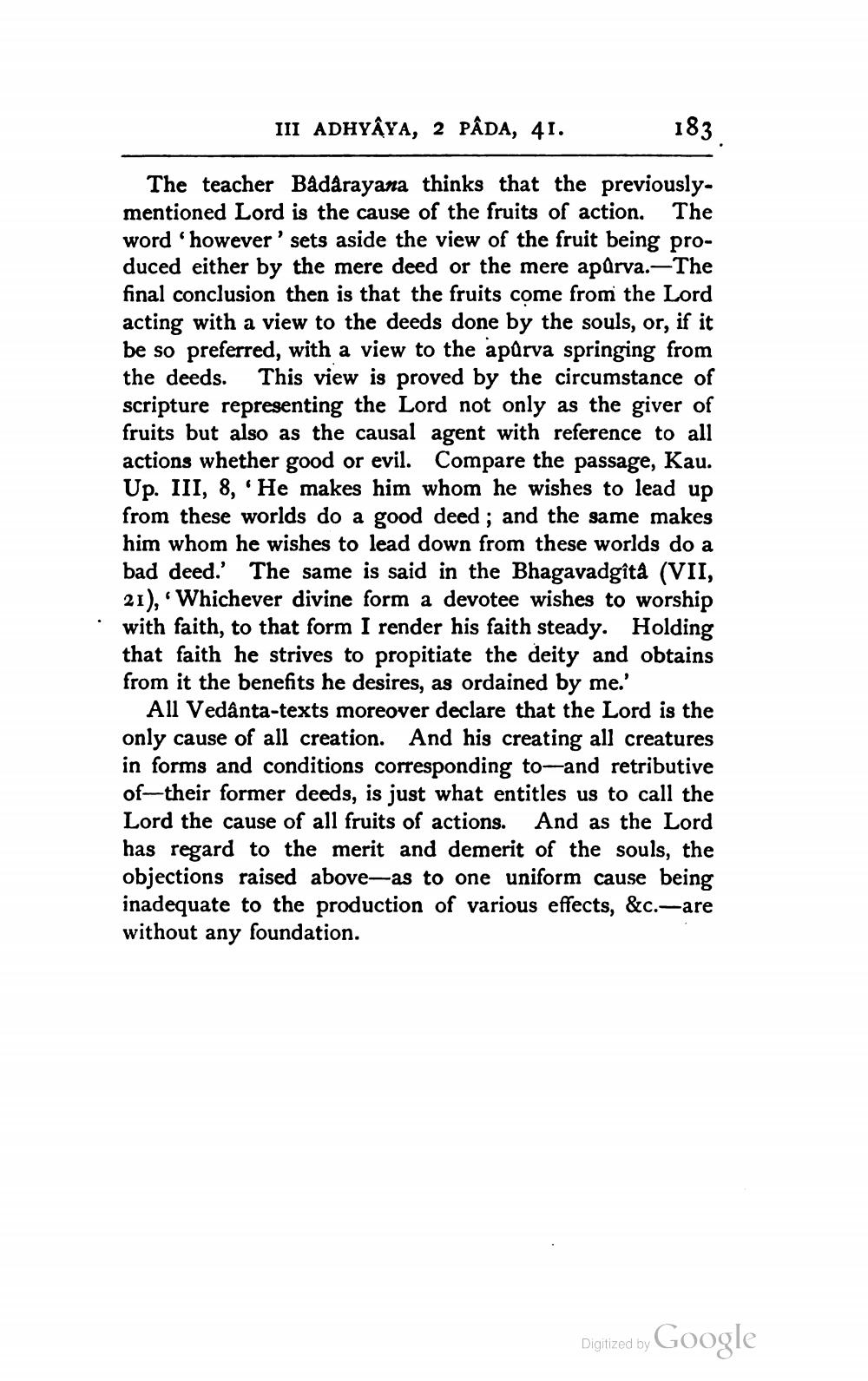________________
III ADHYAYA, 2 PÂDA, 41.
The teacher Bâdârayana thinks that the previouslymentioned Lord is the cause of the fruits of action. The word 'however' sets aside the view of the fruit being produced either by the mere deed or the mere apûrva.-The final conclusion then is that the fruits come from the Lord acting with a view to the deeds done by the souls, or, if it be so preferred, with a view to the apûrva springing from the deeds. This view is proved by the circumstance of scripture representing the Lord not only as the giver of fruits but also as the causal agent with reference to all actions whether good or evil. Compare the passage, Kau. Up. III, 8, 'He makes him whom he wishes to lead up from these worlds do a good deed; and the same makes him whom he wishes to lead down from these worlds do a bad deed.' The same is said in the Bhagavadgîtâ (VII, 21), 'Whichever divine form a devotee wishes to worship with faith, to that form I render his faith steady. Holding that faith he strives to propitiate the deity and obtains from it the benefits he desires, as ordained by me.'
All Vedanta-texts moreover declare that the Lord is the only cause of all creation. And his creating all creatures in forms and conditions corresponding to-and retributive of their former deeds, is just what entitles us to call the Lord the cause of all fruits of actions. And as the Lord has regard to the merit and demerit of the souls, the objections raised above-as to one uniform cause being inadequate to the production of various effects, &c.—are without any foundation.
183
Digitized by Google




